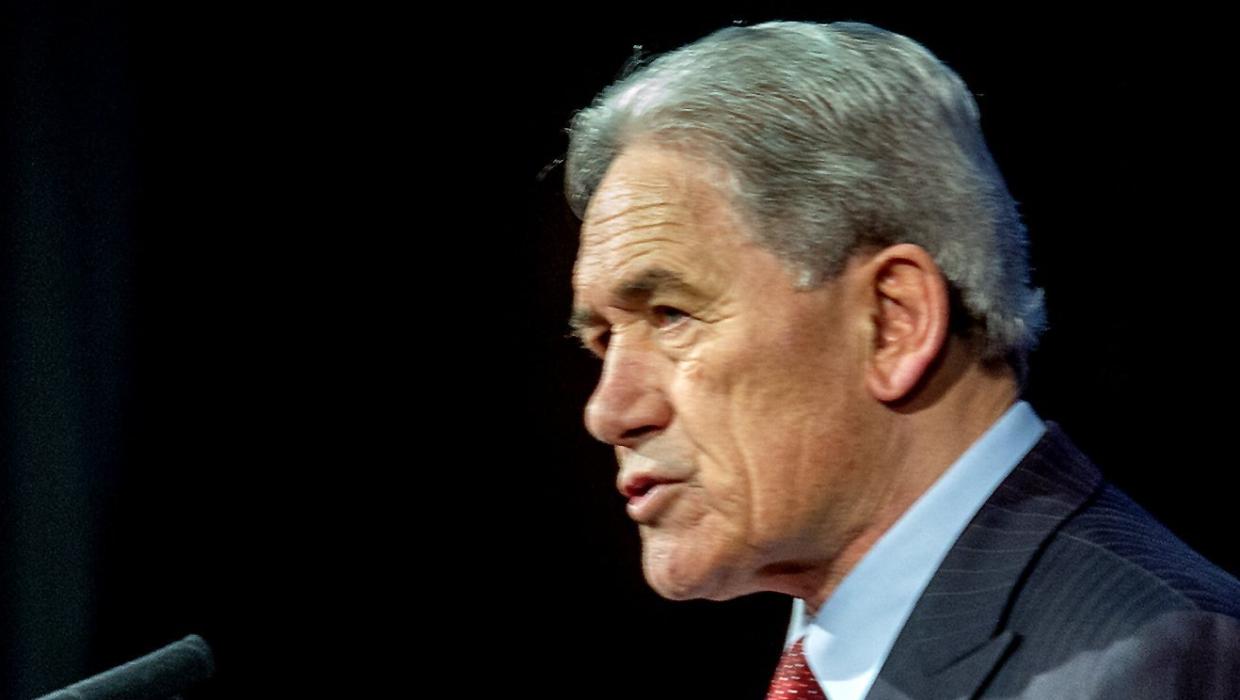Business
Winston Peters Proposes Increasing KiwiSaver Contributions to 10%

Winston Peters, leader of the New Zealand First party, has announced a plan to increase KiwiSaver contributions to 10% for both employers and employees. In a detailed public speech delivered on October 10, 2023, Peters outlined his vision for enhancing retirement savings across the nation while simultaneously proposing tax reductions to offset the financial impact of these changes.
Peters emphasized the importance of KiwiSaver as a vital tool for securing financial stability for New Zealanders in their retirement years. He argued that raising the contribution rate would significantly boost the savings of workers and improve their long-term financial wellbeing. “It is essential that we ensure our citizens are well-prepared for retirement,” he stated, highlighting that increasing contributions will ultimately benefit the economy by fostering a culture of saving.
The proposed increase would apply to both employees and employers, meaning that businesses would also need to adapt to the higher contribution requirements. Peters assured business owners that his administration would implement tax cuts to alleviate the burden associated with the increased rates. He believes that this dual approach would create a win-win situation for both workers and employers.
As part of his broader economic strategy, Peters pointed out that the proposed tax cuts would help stimulate growth and investment in the economy. He emphasized that a well-structured tax system is essential for maintaining a competitive market while encouraging savings. “We need to strike the right balance between supporting our workforce and ensuring businesses thrive,” he noted.
Peters’ announcement comes as New Zealand grapples with various economic challenges, including rising living costs and inflation. By boosting KiwiSaver contributions, he aims to address these issues head-on, providing citizens with a more secure financial future.
The KiwiSaver scheme was established in 2007 to encourage New Zealanders to save for retirement by offering tax incentives and employer contributions. Currently, the minimum contribution rate sits at 3% for employees and employers, making Peters’ proposed increase a notable shift in policy.
While the plan has received mixed reactions, it has sparked a significant dialogue regarding retirement savings and financial security in New Zealand. Supporters argue that the increase is necessary to ensure that future generations can enjoy a comfortable retirement. Critics, however, express concerns about the potential impact on businesses, particularly small enterprises that may struggle to accommodate the increased contributions.
As the political landscape evolves, Peters’ proposal is likely to become a key topic in the lead-up to the next election. With New Zealanders increasingly focused on economic stability and retirement planning, the outcome of this initiative could have lasting implications for the nation’s financial framework.
Peters reaffirmed his commitment to transparency and public engagement, inviting further discussion on the proposal and its potential impacts. “We must work together to create a sustainable future for all New Zealanders,” he concluded, urging citizens and business leaders alike to consider the long-term benefits of enhanced savings.
As this proposition unfolds, it will be essential to monitor its reception among the public and the business community, as well as any legislative developments that may arise in response to Peters’ ambitious plan.
-

 World2 weeks ago
World2 weeks agoPrivate Funeral Held for Dean Field and His Three Children
-

 Top Stories3 weeks ago
Top Stories3 weeks agoFuneral Planned for Field Siblings After Tragic House Fire
-

 Sports3 months ago
Sports3 months agoNetball New Zealand Stands Down Dame Noeline Taurua for Series
-

 Entertainment3 months ago
Entertainment3 months agoTributes Pour In for Lachlan Rofe, Reality Star, Dead at 47
-

 Entertainment2 months ago
Entertainment2 months agoNew ‘Maverick’ Chaser Joins Beat the Chasers Season Finale
-

 Sports3 months ago
Sports3 months agoSilver Ferns Legend Laura Langman Criticizes Team’s Attitude
-

 Sports1 month ago
Sports1 month agoEli Katoa Rushed to Hospital After Sideline Incident During Match
-

 World3 weeks ago
World3 weeks agoInvestigation Underway in Tragic Sanson House Fire Involving Family
-

 Politics2 months ago
Politics2 months agoNetball NZ Calls for Respect Amid Dame Taurua’s Standoff
-

 Top Stories3 weeks ago
Top Stories3 weeks agoShock and Grief Follow Tragic Family Deaths in New Zealand
-

 Entertainment4 months ago
Entertainment4 months agoKhloe Kardashian Embraces Innovative Stem Cell Therapy in Mexico
-

 World4 months ago
World4 months agoPolice Arrest Multiple Individuals During Funeral for Zain Taikato-Fox




















